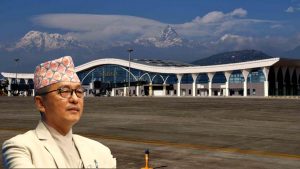
India Accelerates Arms Procurement Amid Push for Military Modernization
New Delhi aims to release overhauled defense acquisition policy by fall

India is fast-tracking its arms procurement process as part of a broader push to modernize its military and adapt to rapid technological advancements and regional security challenges. A completely revised defense procurement policy is expected to be released by September or October, signaling a major shift in how the country acquires and develops military equipment.
Last month, India’s Defence Acquisition Council (DAC) approved new guidelines aimed at making the procurement process “faster, more effective and efficient.” The move aligns with the government’s declaration of 2025 as the “Year of Reforms” in the defense sector.
“This initiative is about eliminating bureaucratic delays and speeding up defense acquisitions,” said N.C. Bipindra, editor of Defence.Capital. “The new system is designed to reduce red tape and improve decision-making efficiency.”

India’s defense procurement process has long been criticized for its sluggish pace. The acquisition of French Rafale fighter jets, for instance, took 13 years from the initial bid in 2007 to delivery in 2020. The revised guidelines aim to shorten such delays by simplifying procedures and cutting lead times.
The global trend of minimizing acquisition delays has already been adopted by countries like the United States, which launched the “Better Buying Power” initiative in 2010 to streamline military procurement. India now seeks to emulate this model by modernizing its procurement structure while emphasizing self-reliance.

General (Retd.) Manoj Mukund Naravane, former Indian Army chief, noted earlier this year that long acquisition delays often result in outdated equipment being inducted, even if the systems are newly produced. The upcoming policy overhaul is expected to tackle this concern head-on.
A key pillar of the new strategy is boosting domestic defense manufacturing. India, once reliant on arms imports from Russia and France—accounting for up to 70% of its defense needs—has now localized 65% of defense production, according to a recent Ministry of Defence statement.
To further this push, the DAC in March approved defense purchases worth over ₹540 billion (approx. $6.3 billion), including additional indigenously developed anti-submarine torpedoes. The ministry also signed contracts worth ₹627 billion with Hindustan Aeronautics Limited for 156 Light Combat Helicopters (LCH) “Prachand” for the Army and Air Force.

India’s accelerated military reform is driven in part by growing regional tensions. Analysts point to the deepening strategic ties between China and Pakistan—and possibly Bangladesh—as a mounting security concern.
“There is a real possibility of a China-Pakistan-Bangladesh nexus forming, which could challenge India’s influence in South Asia and the Indo-Pacific,” said Raj Kumar Sharma, a fellow at Taiwan’s National Chengchi University.
Namrata Hasija, of the Centre for China Analysis and Strategy, emphasized that China’s superior military capabilities remain a key concern. “China’s edge over India is significant, and New Delhi must stay prepared,” she said.

Beyond immediate concerns, analysts say India’s defense overhaul must incorporate long-term strategic foresight. Ayanjit Sen of Red Lantern Analytica argues that the new procurement policy should look ahead to potential challenges in 2030 rather than focusing solely on current threats.
“We need a forward-looking strategy that anticipates future security dynamics, not just reacts to today’s concerns,” Sen said.
With the planned release of a comprehensive procurement policy in the coming months and billions in new contracts approved, India’s defense sector is poised for its most significant transformation in decades—driven by the twin imperatives of speed and self-reliance.
Input From Agency
- Former King Gyanendra Extends Condolences Over Pahalgam Terror Attack
- Nepal Firmly Opposes Terrorism in All Forms: Foreign Minister Dr. Arzu Rana Deuba
- Protests Erupt Outside Pakistan Embassy in Kathmandu Following Terror Attack in Kashmir
- Chinese Export Factories Hit Pause Amid Tariff War Fallout, Signaling Deeper Economic Woes












Comments